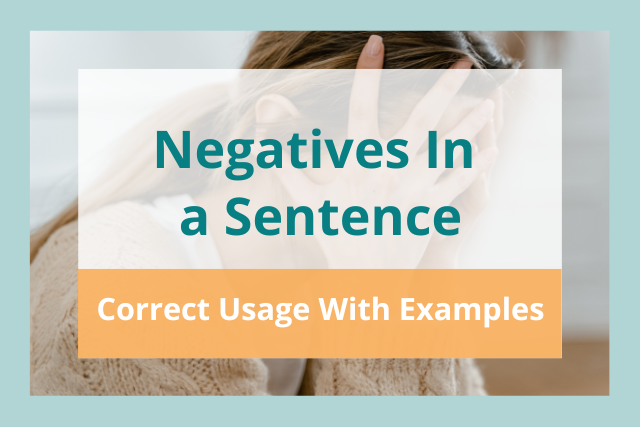
When writing, you should limit the number of negatives you use in a sentence. Using two negatives in a sentence is called using a "double negative" and is incorrect English.
- Incorrect example: I didn't see no one.
"Didn't" and "no one" act as double negatives to each other.
- Correct example: I saw no one. or I didn't see anyone
Double negatives are when you use two negative words in one sentence or clause. While double negatives are allowed in other languages, they are not correct in English. Here’s everything you need to know about double negatives.
What Is A Negative?
Negatives are words that negate the meaning of a word, phrase, or sentence. It doesn’t mean that something is bad; it just changes the meaning. For instance, you negate the sentence I feel happy by saying I don’t feel happy.
In English, some the negatives are: no, not, none, nobody, nothing, nowhere, never, neither, nor, hardly, rarely, seldom. Contractions that contain not are also negatives, such as don’t, can’t, won’t, and haven’t.
Examples of Double Negatives
Double negatives use two negatives in one sentence. When this happens, it changes the meaning back to positive; the two negatives cancel each other out. Double negatives are not considered proper English. Let’s look at some examples.
- I don’t want no spinach.
- We haven’t got no money.
- Nobody never said that.
- I can’t hardly wait.
- No one said nothing.
Exceptions to Double Negatives
Sometimes, it’s okay to use double negatives. One instance is when the negatives are in different clauses.
- No, I don’t like broccoli.
- I can’t see him, nor do I want to.
Neither and nor are always used together when comparing two things (neither hide nor hair).
Double negatives can be used in informal cases to emphasize a point or express a certain attitude (Well, I can’t NOT look at it!).
In fiction, dialogue or narration with double negatives can portray the dialect of a character. But in formal writing, double negatives should always be avoided.
